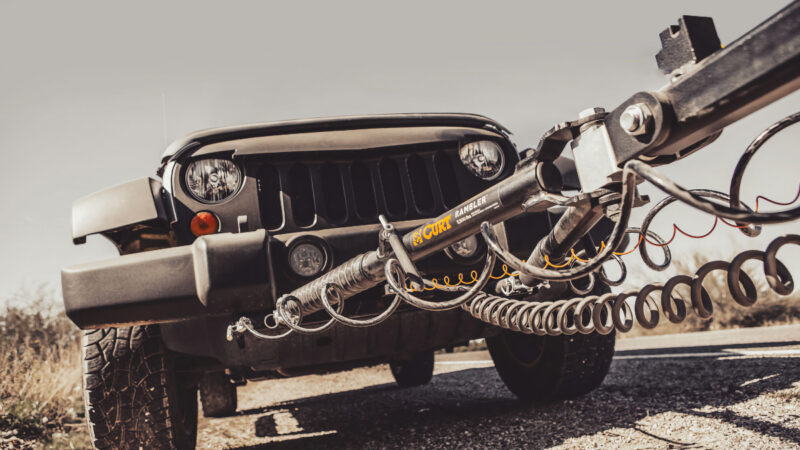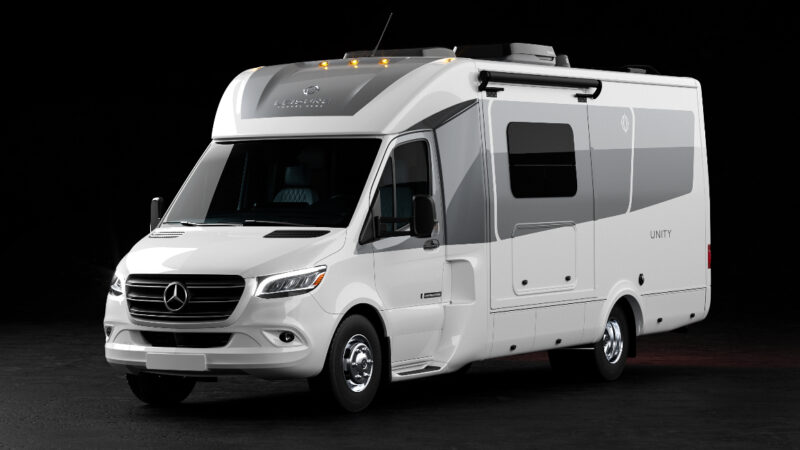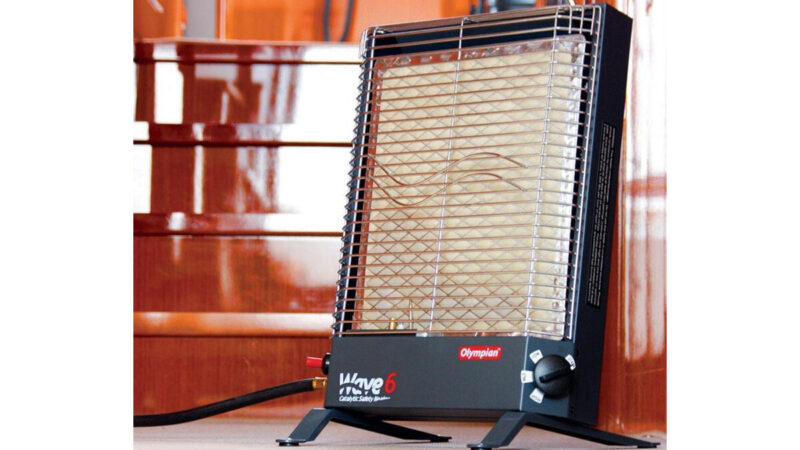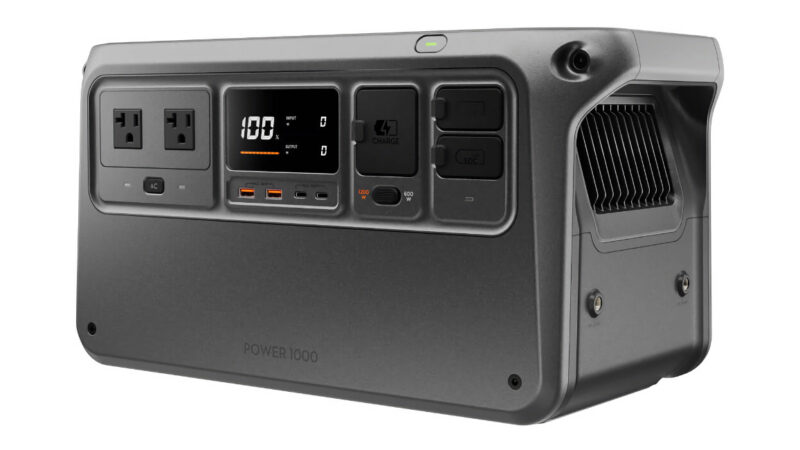8 Things to Consider When Buying a Fifth Wheel
There are a number of reasons why fifth wheel trailers are among the most popular RVs on the market. They are spacious and luxurious and make excellent base camps for travel and outdoor adventure. They also tend to be more affordable than a similarly equipped motorhome and offer more stable towing while traveling at highway speeds. Additionally, these campers provide a lot of versatility, allowing owners to use their tow vehicles to explore an area while the trailer remains behind at the campsite.
All of these characteristics are major reasons why fifth wheelers are such attractive options for RV buyers. But before you plunk down your hard-earned money on one of these travel trailers, there are a few things to keep in mind. While a fifth wheel may be exactly what you’re looking for in a travel trailer, here’s what you should consider before purchasing one.
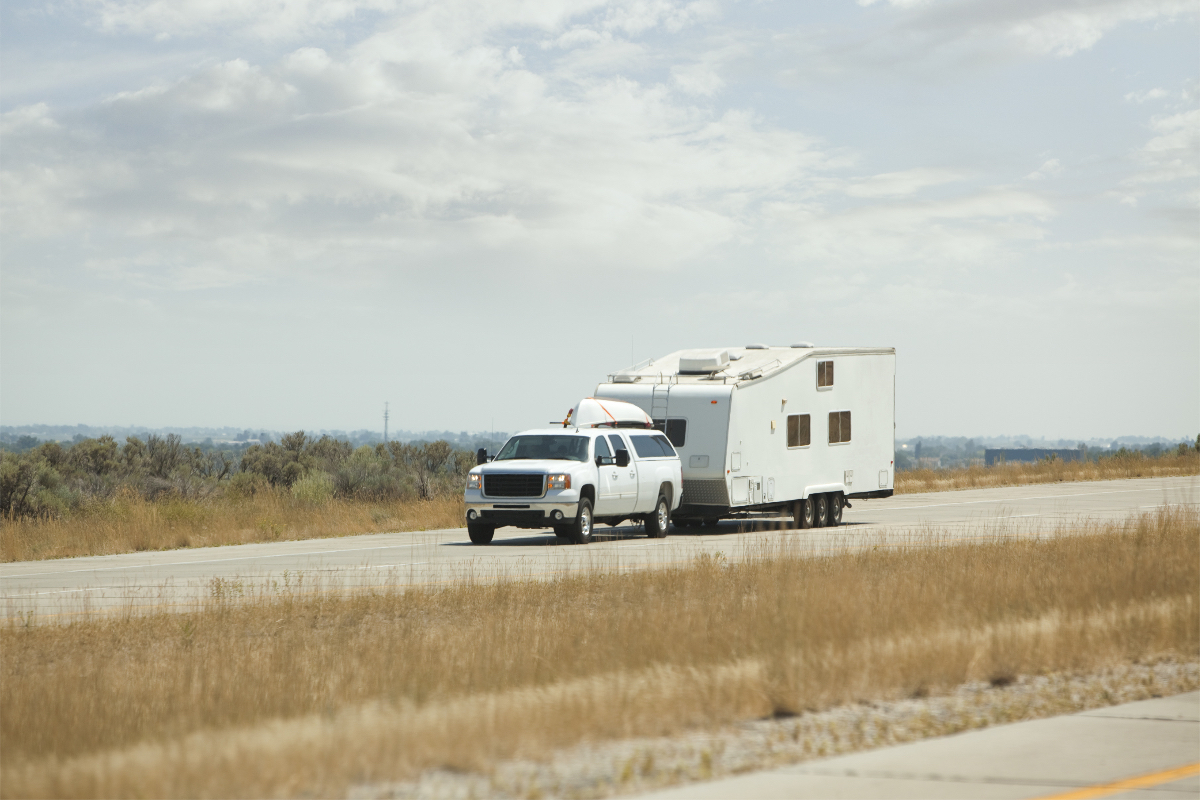
Photo Credit: MCCAIG/Getty
What is a Fifth Wheel?
A fifth wheel trailer is a lot like a traditional travel trailer in terms of look, design, and features. But this type of camper distinguishes itself from conventional trailers in one very important way. While most towable RVs connect to their tow vehicle via a hitch on the bumper, a fifth wheel uses a special type of coupling mounted in the bed of a truck.
Because of this unique hitch system, part of the fifth wheel hangs over the truck’s bed, dramatically changing how it is towed. This approach offers some significant advantages over connecting a trailer to a bumper hitch. For example, the trailer sways and bounces much less frequently, which improves safety and handling while traveling at higher speeds. A fifth wheel also has a better turning radius, which is handy when maneuvering through tight spaces.
These improved driving dynamics allow fifth wheel trailers to be larger than regular travel trailers. This creates additional interior space for more people or an onboard garage for carrying outdoor gear and other toys. The combination of a larger size and improved performance while towing help to make these RVs popular options for buyers.
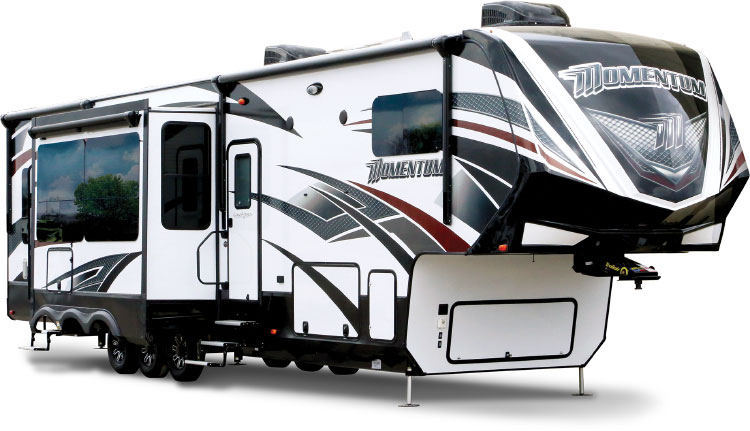
Photo Credit: Grand Design
Things to Consider When Buying a Fifth Wheel Travel Trailer
Now that we know what a fifth wheel trailer is, these are things to remember as you go shopping for one of your own.
What is the Towing Capacity of Your Truck?
Unlike other travel trailers, you will need a truck to tow a fifth wheel. That’s because the unique coupling used to connect the two vehicles is bolted to the bed of the truck. But more importantly, you’ll need a truck with enough towing capacity to safely pull the trailer, which is why the weight of the RV is so important.
Because they are usually larger than a regular travel trailer, a fifth wheel can weigh considerably more too. Some can tip the scales at over 15,000 pounds, requiring a heavy-duty truck to tow them safely. Before purchasing, check the Gross Vehicle Weight Rating (GVWR) for the trailer and compare it to your truck’s towing capacity. If the GVWR is heavier than the towing capacity, you’ll either need a bigger truck or a smaller camper.
Keep in mind that as you add cargo, passengers, and water to the holding tanks of the fifth wheel, its weight will increase. The tow vehicle needs to be able to accommodate that additional weight as well.
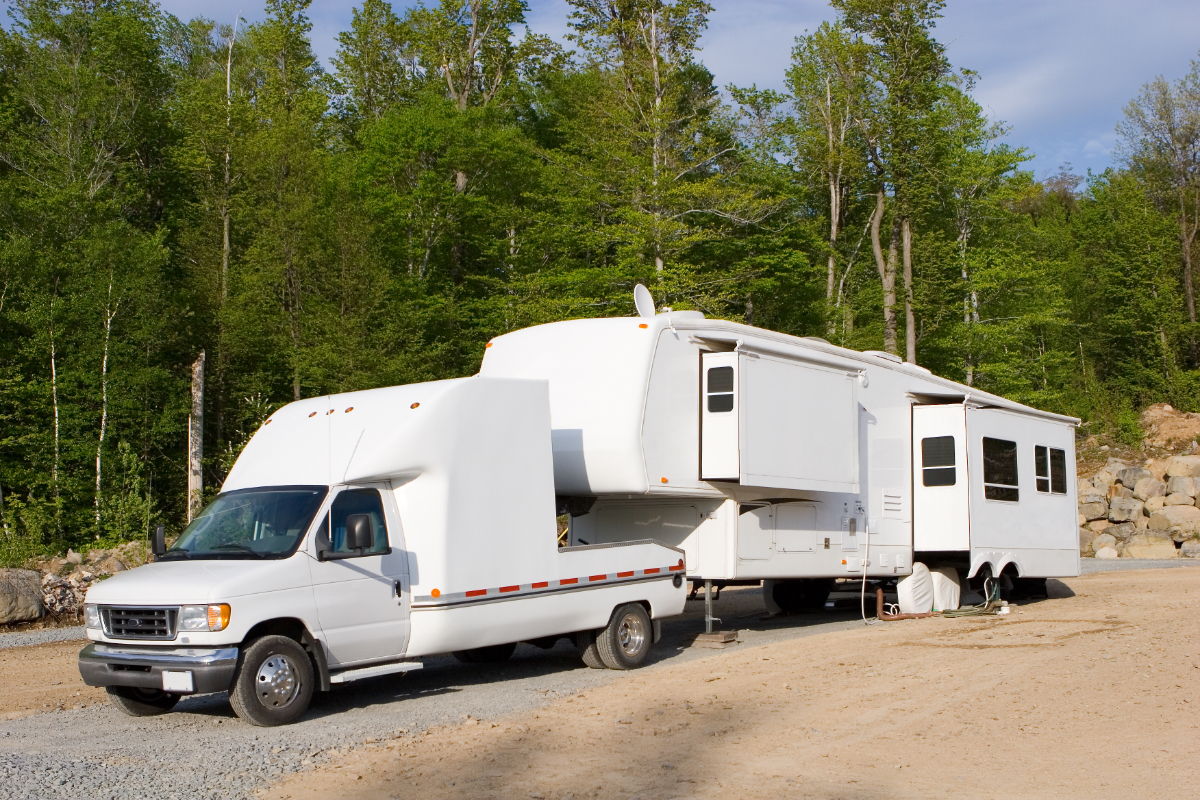
Photo Credit: ImageegamI/Getty
Hitching Takes Time, Patience, and Practice
Connecting a fifth wheel trailer to a tow vehicle is more complicated and time consuming than hitching a travel trailer to the bumper. For newcomers, this can feel incredibly daunting and frustrating, requiring plenty of patience to get things right. This can make going camping feel like an overwhelming chore at times, as rushing could potentially damage the truck or the camper.
Fortunately, things get easier over time, and adding backup cameras to new vehicles has helped speed up the process. Still, hooking up a fifth wheel to a pickup is not as quick and straightforward as a traditional travel trailer, so expect some challenges while you work out the process.
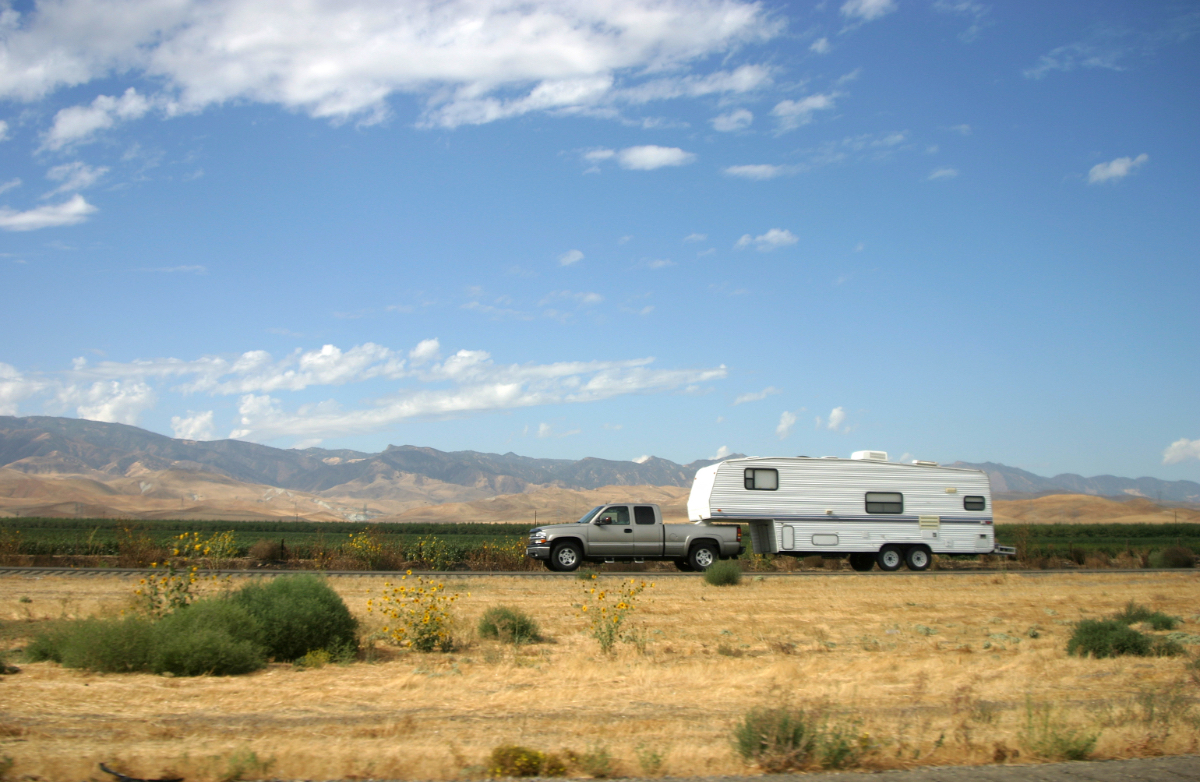
Photo Credit: Sparky2000/Getty
What is Your Budget?
Generally speaking, a fifth wheel will cost more than a traditional travel trailer. As always, there are exceptions to this rule, but on average, you’ll pay more for this type of RV. The added expense comes from the larger hitch configuration and the roomier interior with more features.
On the other hand, a fifth wheel tends to be less expensive than a Class A or B motorhome, which can often cost tens of thousands of dollars more. This price difference is somewhat balanced out by the requirement of a truck with enough power to tow the trailer. A large pickup can be pricey, but buying a fifth wheel can make a lot of sense if you already own one capable of towing a large travel trailer. If not, you’ll need to factor a truck payment into your budget too.
When shopping for your travel trailer, always keep the top end of your budget in mind. While it may be tempting to spend a little more to get additional features and amenities, the added expense can make it harder to afford to take your new RV out camping. Alternatively, you may consider purchasing a pre-owned fifth wheel, which could save you a lot of money and get you an older—but more upscale—camper in the process.
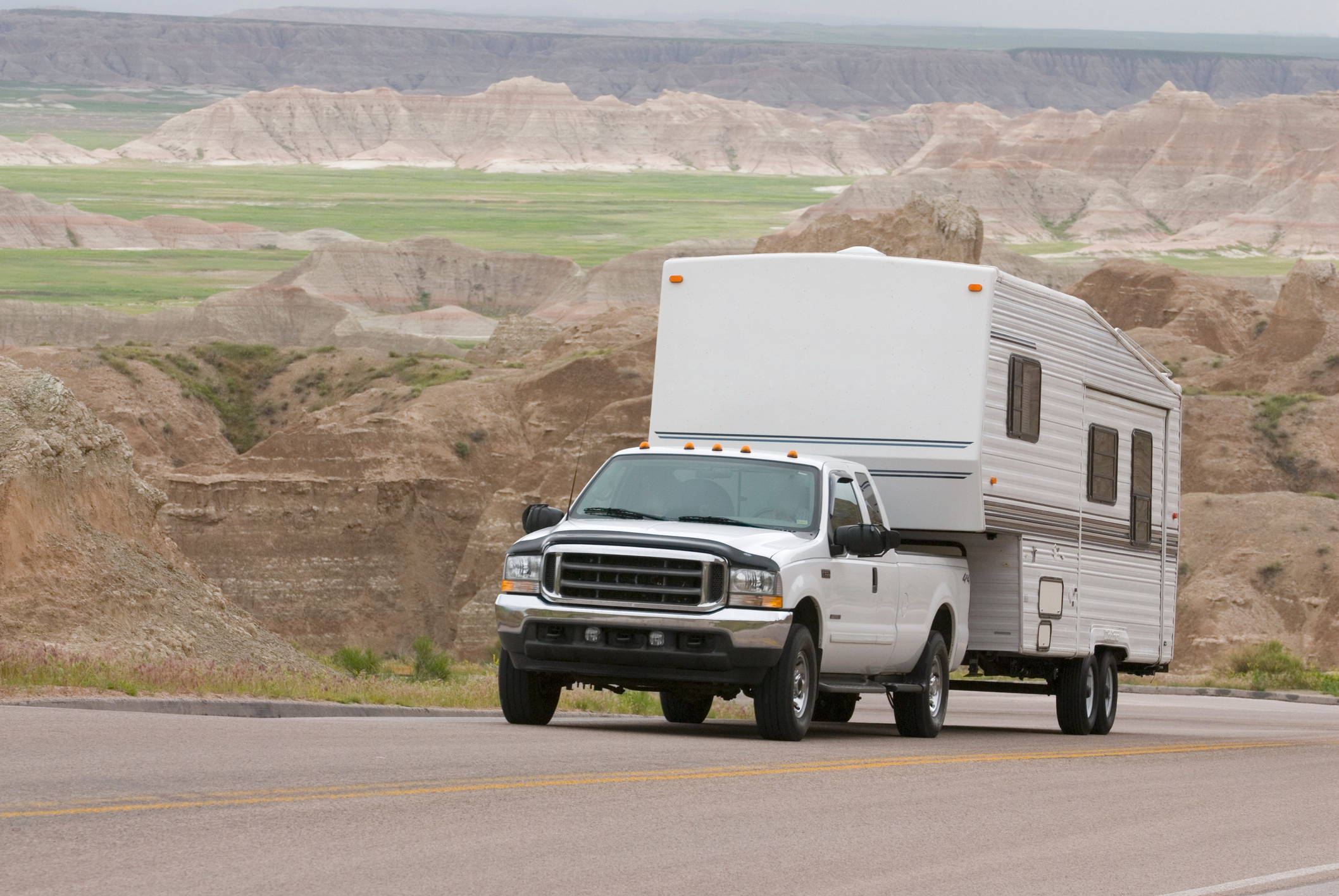
Photo Credit: KentWeakley/Getty
How Often Will You Use Your Fifth Wheel Trailer?
The frequency with which you intend to use your fifth wheel may play an essential role in which trailer you buy. For example, a smaller, lighter model may work just fine if you only plan on camping on weekends throughout the summer. On the other hand, if you want to use it on extended travel excursions across the country, having more features and amenities will make a difference while on the road.
Alternatively, if you are considering living in your fifth wheel for an extended period of time—or even full-time—your list of requirements may be quite different. Having a larger model with more space is a big plus when your RV is also your permanent home. You may also want additional sleeping quarters for visiting guests or a dedicated office for remote work. Other nice options include a robust outdoor living area, abundant cargo space, and internet connectivity.
How you plan to use your RV will impact the size and floorplan of the model you purchase. By thinking about your intended use of the trailer ahead of time, you’ll have a better sense of what features you’ll absolutely need from your camper.
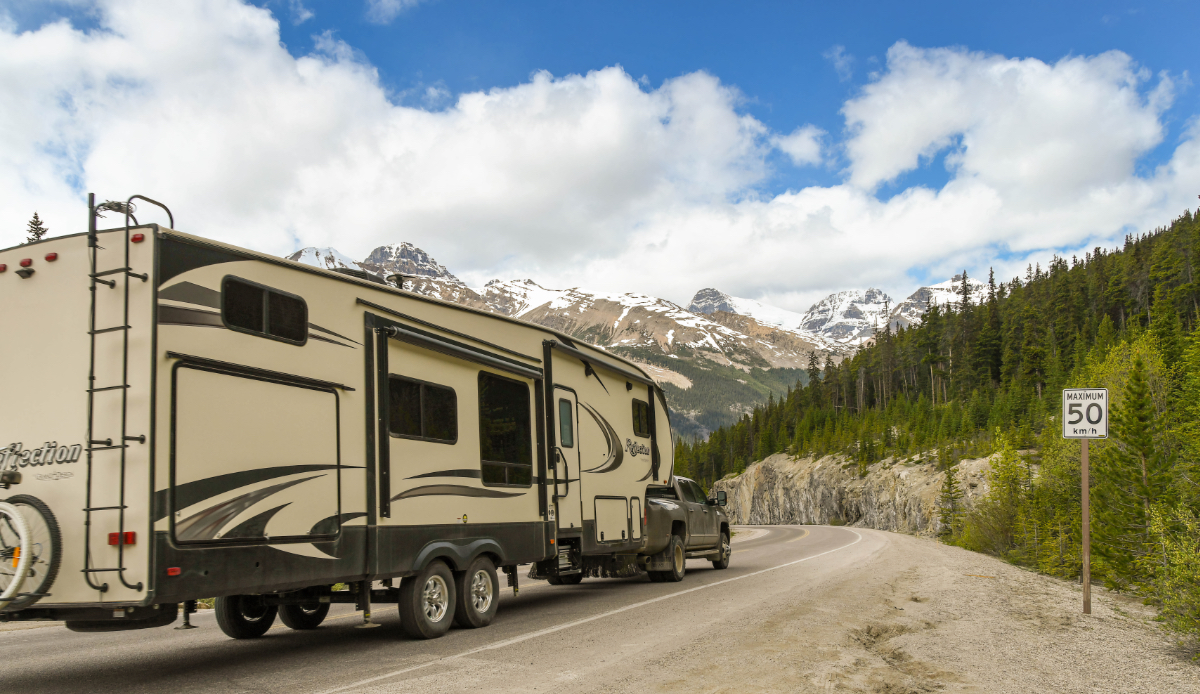
Photo Credit: Ceri Breeze/Getty
How Long Should Your Fifth Wheel Be?
Fifth wheel trailers generally vary in length from 25 to 45 feet, but the most popular models are usually in the 34 to 35-foot range. The trailer size directly impacts the amount of interior space available, as well as how many amenities the manufacturer can squeeze inside. Because of this, buyers often tend to choose a longer model, which can create unexpected challenges.
When deciding which fifth wheel makes the most sense for you, keep in mind that longer trailers can be more difficult to tow. It can also be more challenging to maneuver them into a tight campsite or make your way through heavy traffic. Additionally, some campgrounds limit the length of the trailers that are allowed, which could leave you scrambling to find a place to park the RV.
Remember, bigger isn’t always better.
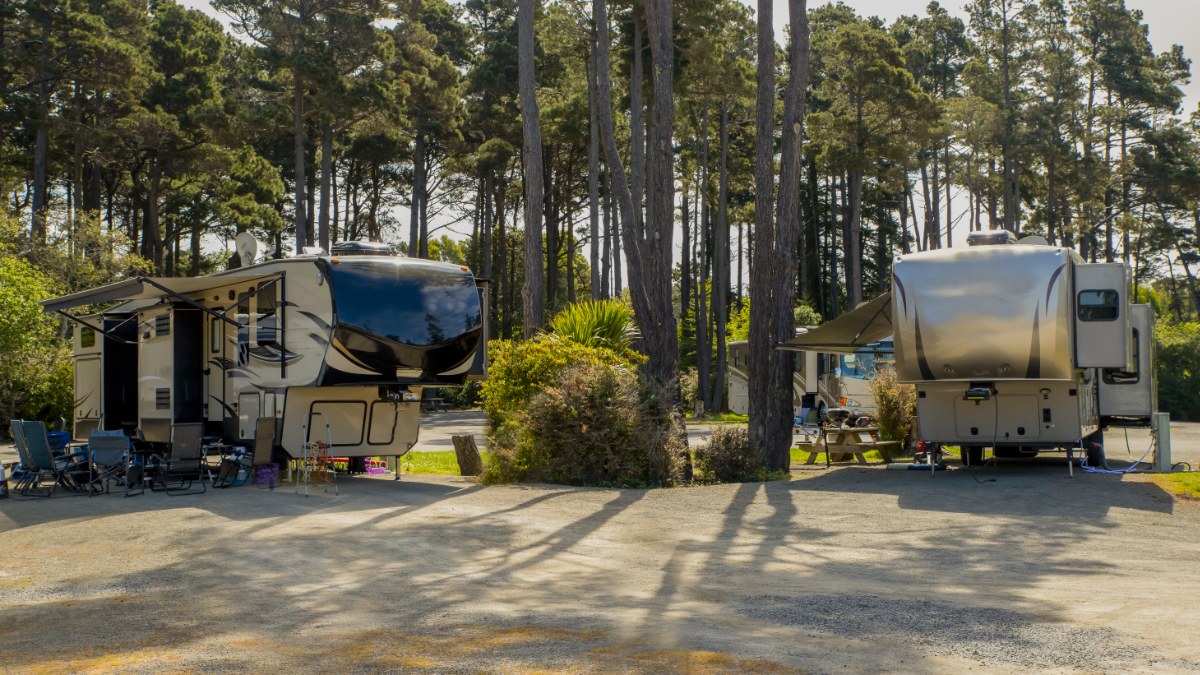
Photo Credit: Larry Crain/Getty
Where Do You Plan to Go Camping?
Due to their size and weight, fifth wheel campers are best suited for use at a campground or a campsite that is easy to access. Most of these trailers aren’t equipped for wandering too far off-road, although that doesn’t mean they can’t be used for boondocking in a remote location. You’ll just need to choose the right place to accommodate a towable of this size.
While in a campground, fifth wheel owners will often have access to full hookups that provide power, water, and sewage. The trailer you choose should have all that functionality built-in, allowing you to park and get connected a short time after arrival. But if you intend to camp off the grid, there are some additional features—like solar panels, battery packs, or satellite TV/internet—that you may want onboard your RV too.
Most fifth wheel trailers come with fresh, gray, and blackwater tanks, but they can vary widely in size. Some are as large as 75 gallons each, which provides plenty of capacity for camping off-grid for an extended period. When selecting a trailer of your own, be sure to check the size of its holding tanks, as that will indicate how often you’ll have to refill or empty those reservoirs—which directly impacts the boondocking experience.

Photo Credit: kruwt/Getty
Where Will You Store Your Fifth Wheel?
RV storage is always a challenge, no matter what kind of recreational vehicle you own. But like a Class A motor coach, finding a place to park a fifth wheel can be especially challenging. Because these vehicles tend to be large, they won’t fit into most garages or even many driveways. And if you live in a neighborhood with a strict homeowners association, you may not be able to park your trailer there at all.
Before purchasing an RV, think about how you’ll store it for extended periods. Keeping your fifth wheel protected from the elements when not in use can extend its life and cut down on maintenance costs. Proper storage will also provide protection from damage during extreme weather events that generate high winds or create falling limbs. A large travel trailer is a significant investment that needs to be kept safe from harm.
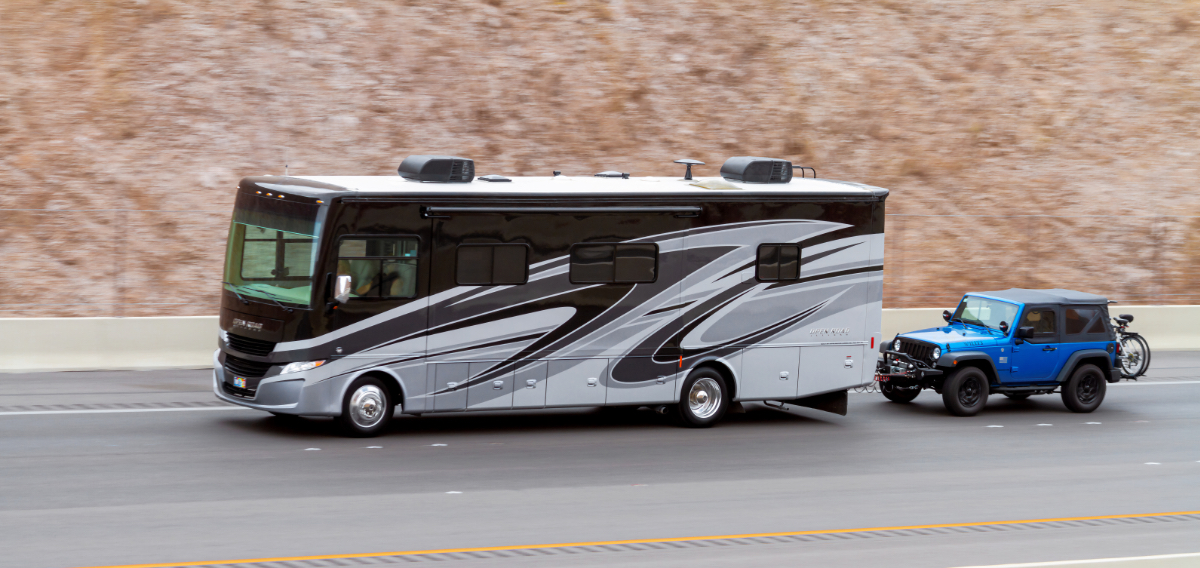
Photo Credit: sanfel/Getty
You Can’t Tow a Dinghy Vehicle
Many RVers prefer to tow a dinghy vehicle behind their motorhome for use once they reach their destination. In some cases, the dinghy is a smaller, more fuel-efficient option for exploring the local area, while others like to tow a Jeep or other 4×4 for off-road adventures.
This isn’t possible with a fifth wheel, however, as these trailers aren’t rated for pulling a car. Of course, one of the benefits of a travel trailer is that you can park it at the campsite and use your tow vehicle to drive to other locations. In theory, this eliminates the need for a dinghy, although not everyone likes driving a large truck everywhere. In addition to guzzling fuel, pickups may not be as versatile as some other vehicles nor as easy to park.
Depending on the location of the campsite and the activities that you want to do, an e-bike or electric scooter could be a viable alternative. Not only are they easy to store and transport, but they also come with rechargeable power packs and can get you around faster than walking.
These are some of the most important things to consider when buying a fifth wheel trailer. These RVs are some of the most spacious and luxurious options on the market, but they require a bit of planning and thinking before purchasing one. Once you understand the challenges of owning one of these large travel trailers, a fifth wheel can provide years of unforgettable experiences.
The post 8 Things to Consider When Buying a Fifth Wheel appeared first on RV.com.
Source: https://www.rv.com/rv/8-things-to-consider-when-buying-a-fifth-wheel/


